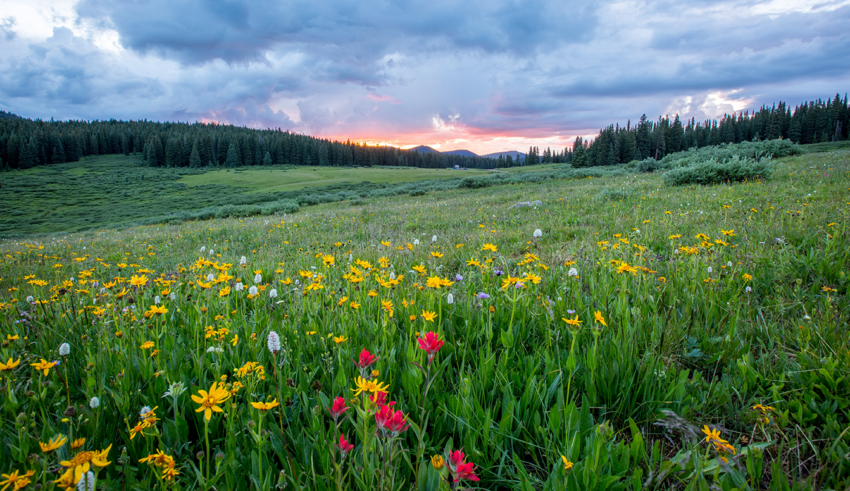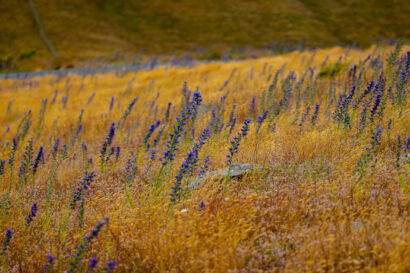AG INSIGHT | 20/11/2017
Tourism Re-Imagineered

Pooran Desai, OBE, Bioregional co-founder and International Director of One Planet Communities, reviews the tourism industry’s sustainability challenge.
‘Pure unadulterated joy!’ That was the overwhelming emotion which overcame me when, with my colleagues, we spent a couple of days as guests at the newly opened Villages Nature resort on the outskirts of Paris. As an environmentalist, a healthy sense of guilt usually underpins any tourism experience – but not here.
Is there any industry facing a bigger sustainability challenge? Tourism’s heavy environmental impacts are hard to reduce, but the need is urgent given how huge and fast-growing this economic sector is.
Tourism is highly fossil-fuel intensive given its reliance on transportation – particularly aviation. New projects designed to attract large numbers of visitors require big infrastructure and lots of land. The industry depends on attracting people to honeypots which are already under heavy environmental stress, or tries to create newly attractive areas – and risks despoiling them in the process.
A deep part of its problems is that environmentalism starts at home; people are most motivated to protect the surroundings where they live. Move them hundreds or thousands of miles away for a holiday and their green priorities go down a few notches.
This, then, is one gigantic green business opportunity going begging on a global scale; one which UK plc should be getting stuck into. Yet there is not a single word about the tourism, visitor and leisure industries in the Government’s recently published Clean Growth Strategy.
Villages Nature is a pioneering, large-scale green tourism venture backed by two of the world’s biggest names in entertainment and visitor attractions – Euro Disney and Groupe Pierre & Vacances – Center Parcs (GPVCP).
This family-oriented resort sited three miles from Disneyland Paris was officially opened last month and we believe it is the world’s most ambitious attempt yet to make a large new tourism development sustainable. We would love to see equally ambitious developments in Britain, and to help them to happen.
For our organisation, Bioregional, it has been a 12-year journey. A UK-based sustainability charity and social enterprise, we first became involved back in 2005, following a visit to our offices in the BedZED eco-village by Gerard Bremond, the founder of Pierre et Vacances.
Inspired by our concept of One Planet Living as a way to create an experience of ‘People and Nature in Harmony’, and by Disney’s ‘Imagineering’ process, a One Planet Experience was imagined and then meticulously engineered.
That included setting the sorts of sustainability targets we need to live within the resources of our one planet, covering the project’s entire lifecycle and monitoring progress through the years of construction and then operation.
We have supported the project ever since those early conception stages and will continue to track the sustainability of the resort now that it has opened to the public, with plans to eventually attract more than a million visitors a year.
Villages Nature offers 868 cottages and apartments set in a car-free landscape of lakes, woodlands, meadows and gardens 20 miles from the heart of the French capital.
It aims to help its visitors reconnect with nature in a tranquil green setting. At its heart is a gigantic swimming and water play complex, the Aqualagon, with water indoors and outdoors heated year-round to 30° C by a carbon-free, geothermal heat source. This source, more than one mile deep, provides the heating and hot water for the entire project and other tourism infrastructure beyond, reducing carbon emissions in the wider area, including Disneyland Paris itself.
Other sustainability features of this €500 million project include:
- Major works to create habitat and enhance biodiversity on site – planting 28,800 trees and 430,000 other plants including 2.5 miles of lake banks planted with natural vegetation. Many of the buildings have extensive green walls and roofs.
- Less than 10% of the entire 259-hectare area, formerly low-biodiversity, intensively cultivated farmland, is being been built on.
- More than 600 jobs created including 75% from the local area, plus a further 1,600 jobs supported in the locality.
- Extensive use of timber, a carbon-storing material, in the visitor accommodation and the Aqualagon, with all of the timber used in construction coming from certified managed forests in Europe. The Aqualagon also used low-carbon concrete.
- Villages Nature Paris has a frequent bus service to the nearby Marne-la-Vallée railway station, served by high speed trains across France and beyond and by Paris’ own RER suburban network. So visitors can easily travel from hundreds of miles away by low-carbon public transport, and also use it to visit the French capital. The resort has plans for a large share of its visitors to travel without using their cars.
Construction of a further 215 homes will begin soon, and eventually the project could expand to provide 2,450 units. The whole development has a plan in place to become completely Zero Carbon in operation.
At Bioregional, we’ve been inspired by seeing our One Planet Framework used – in depth, and for a sustained period – from the early days of such a large and innovative development. The framework is based on ten easy-to-grasp One Planet Principles and has been used in projects all over the world, from individual homes and small organisations to major retailers such as B&Q.
It provides a simple way to plan, deliver and communicate sustainable development, so that projects and organisations support local communities and promote healthy, happy lives while respecting the planet’s natural limits.
Could similar things happen in the UK? We don’t see why not. The climate is similar to Northern France’s and if such developments led to more ‘staycations’ – as opposed to Britons flying overseas – then both the UK economy and the global environment would benefit. Tourism already represents about 7% of UK GDP, approaching £130 billion a year, according to the ONS.
Congratulations to the French for Villages Nature. But of course tourism is the most global and multi-sectoral of businesses. It would be wonderful to see UK leadership in the creative industries, architecture, engineering, transportation, marketing and several other fields applied to greening the industry worldwide.
Pooran Desai OBE is Bioregional co-founder and International Director of One Planet Communities.
Photo credit: Images by Villages Nature® and Claire Brady at Bioregional.



